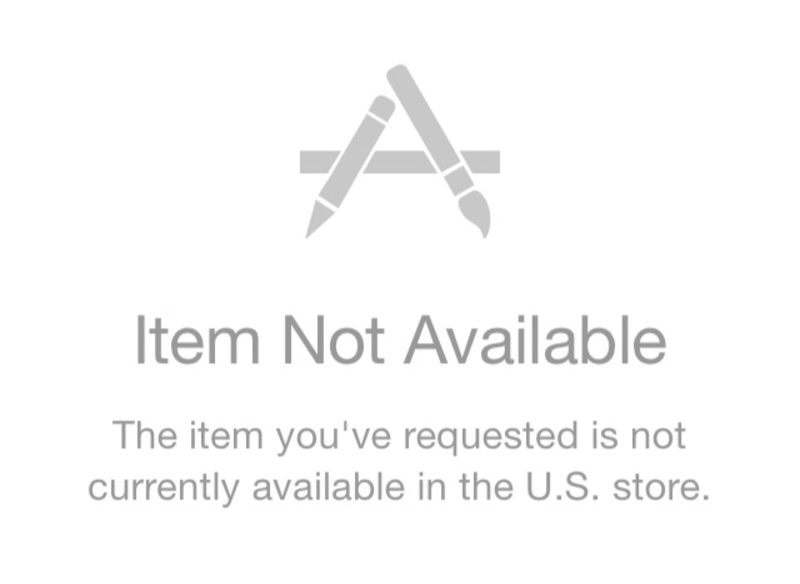The Nomad List Of Shame 2018

Even though the digital nomad lifestyle is growing in popularity, the world has yet to adapt to it. With the Nomad List Of Shame, I want to highlight companies, organizations and individuals that make the lives of nomads harder, in the hopes of generating awareness and, perhaps eventually, making things change.
This is the 2018 edition and, if it proves to be popular, I will release an updated list every year.
Motivation
We live in a globalized world. Internet, as a global network, was the beginning of the end of physical borders. Online businesses, services and organizations have blurried these frontiers even more. The Wikipedia, Facebook, WordPress, Youtube, Google… They all offer -mostly- the same services regardless of where you are.
But not only internet companies have become global. In fact, you can enjoy an overpriced, over-sugared Starbucks coffee from Bali to Buenos Aires, from Iceland to Capetown. While this might have its dark side, even the most local-fanatic hipster will agree that it has brought us closer together.
One of the consequences of globalization, the new remote work paradigm, the falling cost of international travel and the erosion of political borders, is the blossoming of the digital nomad movement.
However, as I mentioned before, there’s still a long path until governments and corporations fully acknowledge and support digital nomads.
Except in rare exceptions, such as Estonia and the e-Residency program, governments are not even capable of understanding the concept of digital nomads. Their institutions, tax offices, health systems and services are simply not ready for people without a home country.
But surprisingly, tech companies that were promising young startups not so long ago -relatively speaking- are also tied to a static world. We are talking about companies considered “innovative” such as Apple or Amazon.
As a result, I decided to write this list -and update it yearly- to raise awareness about the problems that the digital nomad community face when dealing with these companies and organizations.
Hence, without further ado, here are the awards of 2018…
The Nomad List Of Shame

#1. Apple
The winner of this year is clearly Apple. I don’t even know where to start describing why they deserve this award.
Apple is considered one of the most innovative and forward-looking companies in the world. While other companies such as Google, Facebook and others are infamous for building a business model based on selling the data of their users, Apple has always been perceived as an example of a company with “values” that respects the privacy of its customers.
I’ve been an Apple fanboy for years. And while I still love their products, since I became a digital nomad I realized its many shortcomings. I can’t help but thinking of Apple as an archaic company, with many procedures, protocols and technologies rooted in the past.
Let me elaborate on that.

The App Store Problem
To begin with, the separation of App Stores by country causes lots of problems. By default, Apple links your App Store account to the country where your bank account is.
The problem is: for weird reasons, some apps are only available in certain App Stores. I’m not talking about China censoring “objectionable” apps, or about gambling or dating applications, I’m referring to lots of completely normal applications that are not available in the Estonian App Store (which is a democratic, European country).
Previously, I had my iTunes account linked with my Estonian company and bank account. It made a lot of sense, since I only buy working tools for the iPad Pro, especially tools for developers or designers.
However, I soon realized that it was a total hassle. Many applications are simply not available in Estonian App Store. This includes apps I use everyday (such as Duet, or Gaget), and Apps such as the previously mentioned Madrid metro app.
So I decided to change to the British App Store. For my personal finances, I use Revolut. My Euro bank account is in the UK, but my phone is still Estonian. I don’t live in any of those countries. That was really a challenge, and required quite a number of calls to Apple Support in order to set up the account.
Fortunately, the UK App Store has a lot more applications than the Estonian one. However, from time to time I still have to change stores to be able to download a simple free metro application.
In today’s digital world, dividing a global application market by country seems like an anachronism. No, I don’t care about different sensibilities, government censorship or local taboos. People should be free to install the same apps wherever they live, and wherever their bank accounts are.
If You Are A Digital Nomad, Don’t Try Apple Music
One painfully clear example. My partner signed up for the free Apple Music three months trial subscription. Today, he needed to change his Apple Store country, because he needed an App that was only in the Spanish App Store (sigh).
Then we found out he was not able to change stores until the “subscription” was canceled. We then went to preferences and canceled the subscription. But the message was the same…
“To change stores, you must first cancel your Apple Music membership“
Turns out, until the subscription expires, you cannot change stores. Yes, you read that correctly. We tried calling support, so don’t waste your time trying… You will be stuck at that store until your Apple Music trial expires. Good luck installing that App you need from that other store…
So if you are a digital nomad, don’t even think on trying Apple Music.
The Opaque Tax And Selling Policy
Apple has been fined in the past for trying to evade taxes by the European Commission. I recently understood why.
Two days ago, I tried to buy a MacBook Pro for my Estonian company. I located a refurbished one that was quite good. As the laptop is my main working tool -even though I’m trying to switch to the iPad Pro full-time– it made sense to buy it as a company expense.
So I went through the whole shopping process and, when asked to enter the data about my company, I discovered that I could not enter an Estonian VAT. I could not even enter my Estonian phone number. Apple’s Spanish Store simply won’t allow me.
So I called support. I wanted to buy that laptop. As I was in Madrid, it made sense to get it from the Spanish Apple Store.
Then I went through the whole shopping process again over the phone. When we get to the billing information and I request an invoice for my Estonian company, the operator informs me that they cannot do that.
What?
I tried to argue with him that I have the right to ask for an invoice for my company when buying any good from any company, especially between European companies. His answer was: “Sorry sir, we cannot sell you the Macbook Pro”.
I am no lawyer, but as far as I know, this is completely illegal. Not only that, but it makes it look like Apple is trying to evade taxes or avoid paying VAT.
Hence, if you are a digital nomad, you find yourself in the Apple Store of Madrid, or London, or Paris, and your business is registered in another country, you will have a hard time convincing them to issue an invoice for your company.
Overall…
Overall, my experience with Apple since I left Spain has been extremely disappointing. If you lead a nomadic lifestyle, and your phone is simply not from the same country where your bank account is, you are going to have a lot of trouble with them.
Apart from that, having different App Stores with different applications per country becomes an issue if you travel regularly. I certainly expected better from a company with such a forward looking attitude

#2. Paypal
I talked about Paypal when I discussed payment solutions for micropreneurs, e-Residents and digital nomads. Paypal was a very innovative company when it launched as Confinity in 1998. However, it hasn’t adapted to the new times, and has largerly been rendered obsolete by current fintech solutions.
Apart from an ugly, ancient interface, and a complicated account verification process, one of the biggest problems of Paypal is how its service is divided by countries, and the assumptions they make about their customers.
One of such assumptions is that you live in certain country, your phone number is from that country, and your bank account is from that country too.
As I mentioned before, my phone number is Estonian, my bank account has a British IBAN, and I don’t even have a steady residence address anymore. Thus, for me it was simply impossible to open a personal Paypal account.
And the problem is that many services and web applications accepting payments only work with Paypal. Notable examples I’ve found, as a composer, include Bandcamp -probably the best indie album distribution system online- and DistroKid.

#3. Amazon
I am surprised that Amazon can keep its position in as the leading player in the electronic commerce market. Its website looks like something built with Frontpage circa 1995. It’s ugly as hell, confusing and overcluttered. I bet it’s taught in design courses as an example of how not to design a user interface.
However, that has nothing to do with being a digital nomad. The real problem is -again- how they have a different platform for every country.
This is especially relevant if you are an Affiliate Marketer, and it’s the reason why solutions such as Genius exist. Imagine you have a tech blog, and want to start earning money by promoting Amazon products. You join the Amazon US affiliate program, get a link for a gadget, and embed it on one of your posts.
Then, some time later, you notice you are missing lots of clicks. People is using your affiliate link, but you are not getting any money. Why? Because they are not from the US. They are from France, Italy, Spain or the UK.
And then you realize something that sounds so stupid that you’ll never believe it if told by a friend: You need an Amazon Affiliate account for every country a reader of your blog may come from. At least, if you want to reap the rewards of those clicks.
That’s where a service like geni.us comes in handy. It allows you to link as many Amazon Affiliate accounts as you wish, and generates universal links so that, no matter where your readers are from, if they click on the link, they will be redirected to the right Amazon Store, and you will earn your commission. Except…
International Bank Accounts
Except you still need a bank account in all of those countries. Amazon offers other options like gift cards that, honestly, are a joke for serious affiliate marketers. Unfortunately, solutions like Revolut won’t work, because you can’t specify reference numbers on Amazon.
So where does that leave you? Unless you can open real bank accounts on the US, Italy, France, Spain, UK, India, Japan… Or use one of the many services and hacks to get paid from all those stores, you won’t be able to earn your fees if you have an international audience.
That shows a shocking lack of concern about their affiliates, and a overall ignorance on how internet works. This blog, for example, has a global audience. I have readers from the US, all over Europe and Asia. It would be very difficult for me to make money from Amazon affiliates.

#4. Local Governmental Institutions
Most countries today don’t understand or even acknowledge digital nomads. The concept itself is hard to grasp for them. The vast majority of governments -with honorable exceptions such as Estonia- still think of their citizens as people who live their lives in their countries, with a house, steady job, and family.
Local organizations and offices are not ready for things such as having a phone number, address or bank account in a foreign country. This extend both to their physical offices and their online services.
Many forms on the whole Spanish administration network, for example, will ask for your phone number. All of them expect exactly nine digits, corresponding to a Spanish number. Forget about adding an international prefix, or even doing the trick of specifying it with zeroes.
Address fields are usually the same, with the country selection disabled and set to “Spain”. Recently I needed to pay to get a report from the administration. I was initially thrilled to find that there was an option to pay with debit card, but -surprise!- you needed to specify the bank that had issued the debit card and, obviously, only Spanish banks were listed.
Have you ever heard something more ridiculous? That completely defeats the purpose of debit cards.
So all in all, I wanted to list here all governmental institutions. Perhaps this is an overly simplistic generalization. If your country is different, don’t hesitate to leave a comment. I will be delighted to find out that there are countries that are doing things right. 🙂
Conclusion
In this “Digital Nomad List of Shame”, 2018 edition, I wanted to raise awareness about the fact that institutions, organizations and companies worldwide are still tied to the illusion of a steady location.
As the nomad lifestyle grows in popularity, and options for working or conducting business remotely become become mainstream, a lot of people is adopting this location independence life.
These people often find themselves struggling with platforms and systems that won’t even let them fill their data, simply because they were not programmed or even designed with them in mind.
Do you miss a company or organization in this list? Would you like to add something? Don’t hesitate to do so leaving a comment below!




Comments ()